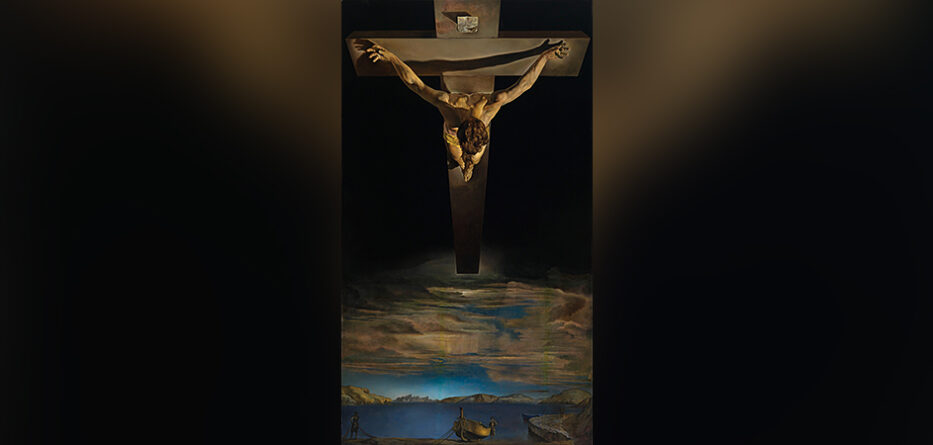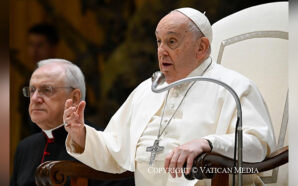For Christians of every age, the invitation of Jesus to “deny themselves and take up their cross daily and follow me” (Luke 9:23) is a challenge that has many dimensions.
For the first generations, the message was clear: If you want to follow Jesus, you have to be prepared to put your life at risk for the sake of the Gospel. Over the centuries, we have tended to focus on how we carry our individual crosses – sickness, death, broken relationships and personal struggles that involve suffering. It is important that we do this, but a spirituality of the cross means much more than stoically bearing with sickness and suffering in its many forms.
Any spirituality of the cross needs to begin with Jesus. The Gospel writers focus on Him as a model of authentic faith, courage and care for others. In the Garden, He wrestles with the journey that lies ahead and prays that he might be able to do the will of the Father (Matthew 26:42). Even though He feels abandoned and isolated, praying in the words of Psalm 22, He is still able to pray that God will forgive those who crucify Him (Luke 23:34) and He promises the repentant thief a place in paradise (Luke 23:43).
As He dies, the Gospel writers depict Him as handing over His spirit with confidence and faith. In the difficult moments of our lives, we too seek to pray those beautiful words of Psalm 31:5, “Father, into your hands I commend my spirit.”
A spirituality of the cross has many dimensions as we honour its meaning for society, creation, the Church and the individual. Carrying our cross is not simply about enduring suffering nobly, though that has its value. The cross always calls us to share in Jesus’ mission in the circumstances of our own lives, that of our families, our communities and the world.
What a spirituality of the cross and passion doesn’t mean is glorifying or accepting meaningless suffering.
What the New Testament writers spoke about was that Jesus was not simply a victim of an act of violence, one who suffered a brutal death. Those who called for His death wanted to eliminate a threat to the power of Rome and to the religious authorities of His day who saw Him as a blasphemer.
If we look deeper, Jesus’ suffering and death were a result of God’s commitment to humanity and Jesus’ own commitment to us. Many centuries before, Isaiah cried out for God to tear open the heavens and come to be with us (Isaiah 64:1). God’s reply to that plea was Jesus.
Jesus’ death was a consequence of being faithful to a mission to preach the coming of God’s reign of love and justice, healing the sick and wounded, bringing the lost sheep home and offering hope to sinners. To use Paul’s words, the cross has the power to radically change lives so that “the life I now live in the flesh I live by faith in the Son of God, who loved me and gave himself for me” (Galatians 2:20).
Jesus shared in our vulnerability and suffering and we are called to continue that mission. This is why the opening lines of the Vatican II document on the Church in the modern world, Gaudium et Spes, continue to resonate for every age:
“The joys and the hopes, the griefs and the anxieties of the men of this age, especially those who are poor or in any way afflicted, these are the joys and hopes, the griefs and anxieties of the followers of Christ.”
Taking up our cross every day is a commitment to what Jesus was committed to, namely, transforming, healing, renewing and building community in His name.
Each of us share in Jesus’ mission in our own way – showing that love is more powerful than hate by being in right relationship with others despite violence and hatred. It is making the world a better place – trying to make it whole, since holiness is ultimately about becoming whole.
Together, we search for justice and share in the struggle of creation to become what God is calling us to be. As Paul knew so well, all creation is groaning and suffering in giving birth to the new creation that we all long for (Romans 8:18-19).
A spirituality of the cross means bearing with our own sufferings in loving and hope-filled ways. Pope Francis has called us to embody the joy and hope of the Gospel for others becoming “a field hospital”, a place where people come to be healed.
In the words of St Paul, “we proclaim Christ crucified, a stumbling block to Jews and foolishness to Gentiles, but to those who are called, both Jews and Greeks, Christ the power of God and the wisdom of God” (1 Corinthians 1:23-24).
As we take up our own crosses each day, let’s pray that we make that wisdom our own.
Rev Dr Chris Monaghan CP is the President of the Yarra Theological Union, Box Hill, Victoria.
This article was originally published in the 2024 Season of Creation | Spring edition of the Catholic Outlook Magazine. You can read the digital version here or pick up a copy in your local parish.








